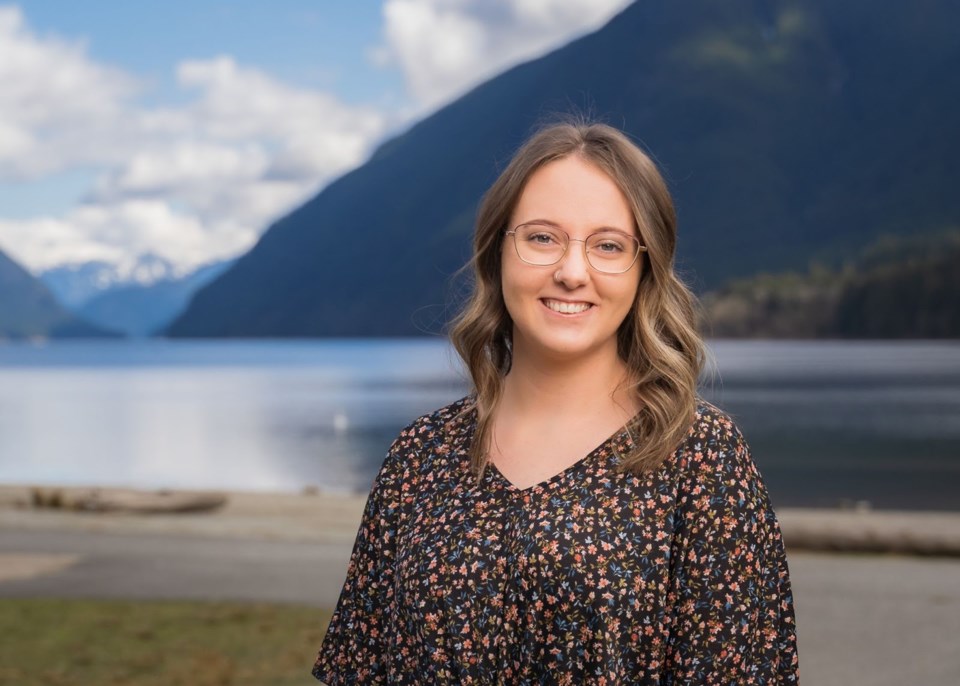Miranda Tymoschuk’s courage and resilience in the face of the many hardships in her recovery journey over 25 years of her life is remarkable.
Miranda's challenges became apparent when she was only a few hours old. Born at Royal Columbian Hospital in 1996, pediatric orthopedic specialist, Dr. Shafique Pirani, diagnosed her with posteromedial tibial bowing
Complications of this rare condition meant that one leg would grow more slowly, and she would have to undergo several surgeries to reset her leg throughout her childhood.
When Miranda was 5 years old, her father passed away suddenly, leaving her mother alone to care for three young children, including one with significant health challenges.
“The love and support of my mom, despite the incredibly challenging circumstances of her own, was an incredible source of support for me,” says Miranda. “She was always there in the hospital with me, and I couldn’t have gotten through all of that without her by my side.
Miranda underwent her first surgery when she was 8 years old. She had to undergo the painful process of physical therapy, having to wear a scaffolding brace and re-learn how to walk again. Five years later, the second set of leg surgeries meant that she had to endure the recovery and rehabilitation process once again.
In 2008, Miranda was hospitalized due to a kidney stone. After several surgeries and consultations with specialists, she was diagnosed with both Crohn's disease and chromosome duplication, which puts her at risk for aortic aneurysms.
As Miranda grew older and her complex health challenges and medical traumas increased, so did her mental health challenges.
Due to the hospital visits, surgeries, and long intensive recovery periods, she would miss days, weeks, and months of school. Miranda experienced isolation, anxiety, and depression, which led to self-harm and abuse of pain medications to numb the overwhelming physical, mental, and emotional pain.
Despite the pain and frustration she felt, Miranda never gave up and sought help from counsellors and psychiatrists to address her underlying issues and overcome her challenges.
Miranda's incredible courage is not only as one who has come back, but as one who constantly gives back by seeing her challenges as opportunities to use her experiences to help others.
"I must use what I have gone through to help others so they might feel less alone," says Miranda.
Miranda Tymoschuk. Photo: Avrinder Dhillon.
Miranda started the MICY Emergency Response fund at Royal Columbian Hospital Foundation to assist families in covering extra expense during hospital visits that can cause additional stress when a loved one is hospitalized.
In 2011, she volunteered with Me to We and Free the Children in Kenya, Ghana, and India to work on volunteer projects and create sustainable solutions to the challenges faced in developing countries.
Miranda has completed Peer Support Training and Core Addictions Practices through Coast Mental Health and Fraser Health Authority. She has worked with Early Psychosis Intervention in Abbotsford and Creekside Youth Detox in Surrey, Ridge Meadows Youth Wellness Centre.
Throughout the pandemic, Miranda has been working as a Peer Support Worker with Foundry BC's virtual division, which provides counselling and peer support for youth who are struggling with their mental health.
Miranda is looking ahead to graduating from Simon Fraser University with a Bachelor of Arts and Sciences, a certificate in Innovation and Entrepreneurship, and a minor in Indigenous Studies. She aspires to study Global Health, attend medical school, become a primary care provider, get involved in more global philanthropic projects, and travel to more countries — such as Uganda.
Miranda has turned her own challenges into an opportunity to be of service to others through work, fundraising, and telling her story — it’s a very powerful way to impact others and assist in their own recovery journeys.
“The greatest thing I've learned is the power of connection and community between people as a catalyst for healing,” says Miranda. “I’m fortunate to have the opportunities and platforms to make those connections, and I’m excited for what the future holds and how I may continue to use my story to help others.”
Every year, Coast Mental Health Foundation celebrates the stories of British Columbians who have overcome extraordinary adversity to come back and give back to their communities.
The Courage To Come Back Awards have raised critical funds for Coast Mental Health to support people living with mental illness in the Lower Mainland, through housing, support services and employment.
Find more inspirational stories and to find out how you can support, visit couragetocomeback.ca.



